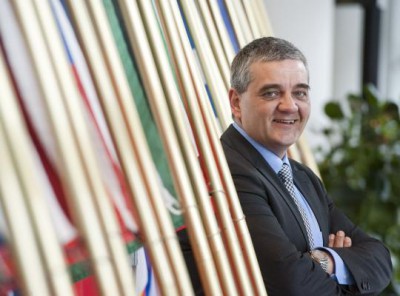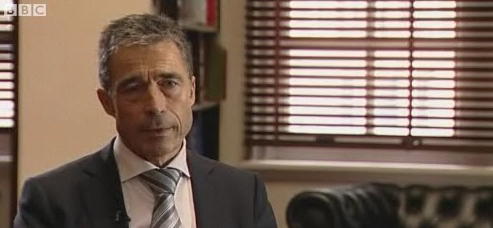We must reinvest in defense, explains Steven Vandeput
 (BRUXELLES2 – exclusif) Il y a quelques jours, le ministre belge de la Défense, Steven Vandeput, accordé à B2 un entretien, en tête à tête. Une interview complète où le ministre aborde les menaces qui pèsent sur l’Europe et les changements que cela implique, les modalités de la coopération européenne et la restructuration de la défense belge. En ce jour de fête nationale pour la Belgique, ses propos sont particulièrement intéressants sur ce dernier point. Extraits…
(BRUXELLES2 – exclusif) Il y a quelques jours, le ministre belge de la Défense, Steven Vandeput, accordé à B2 un entretien, en tête à tête. Une interview complète où le ministre aborde les menaces qui pèsent sur l’Europe et les changements que cela implique, les modalités de la coopération européenne et la restructuration de la défense belge. En ce jour de fête nationale pour la Belgique, ses propos sont particulièrement intéressants sur ce dernier point. Extraits…
Full interview publiée sur B2 Le Club (l’édition Pro de B2)
Belgium is engaged in a reform of its defense, what is your state of mind?
I want to introduce into Defense a spirit of having only what is really necessary. That's what we did in Malbork. The host support from the Poles is excellent; there was therefore no need to have all the personnel deployed, in particular the liaison officers who were not strictly necessary. So we reduced the number of people who were there. It's more economical. And that does not change the smooth running of the mission.
Ces économies ne suffisent cependant pas. Le budget belge de la Défense a diminué ces derniers temps. Il est à l’os disent de nombreux experts et des militaires… Que peut-on faire ?
Choices have to be made. In the past thirty years, the budget has always been reduced, to a level where today it is difficult to meet everything. The Belgian military are known by their partners: flexible, innovative, creative, managing to do more with less money, But there are limits. Wanting to do more with less money is over. We must reinvest in defence. We have agreed on this at both NATO and European level. My first objective is therefore to achieve – as provided for in the government plan – a balanced budget. And when the economy picks up again, I think choices will have to be made. Security, which is one of the main tasks of a company, will have to be part of this choice.
Concretely, what does this mean? Will the Belgian army be able to continue to do everything, a navy, an air force, an army? Shouldn't specialization be introduced?
Some might actually say to themselves: do we need a naval component? But that is to forget the importance of the maritime sector for Belgium and for our economy; 90% of what happens goes by sea. No longer having mine-hunting ships means depending on our partners when we have a mine in the Scheldt estuary. It's quite difficult to imagine it. For our economy, we must therefore preserve certain necessary means, which we do not (can) not delegate. So there are limits to specialization. I consulted 12 sages, from left to right, the full spectrum of society. Everyone says it, with nuances. But everyone recognizes it, we are at the limit, we are at the bone. At the start of the school year, we will have to make a decision on the budget for the future and the capacities in which to invest. We must be present in the current 4-5 dimensions: land, air, sea, cyber and intelligence. We cannot forget any of these dimensions. You just have to choose where you invest.
So the European army is not possible?
Je ne crois pas qu’on va avoir dans les 20 ans une armée européenne. Si on veut mettre tout le monde ensemble pour décider, alors on ne se déploiera jamais. Il n’y pas actuellement le pouvoir politique pour le faire. On partage beaucoup d’intérêts au niveau européen mais pas tout l’intérêt. Même avec nos plus proches voisins, on peut partager beaucoup mais pas tout. Car il y a des intérêts typiquement belges et des intérêts typiquement néerlandais. Nous travaillons ensemble, avons une même plateforme de navires, faisons en commun la préparation, la formation, l’entraînement, etc. Mais la décision de déployer un navire reste la nôtre. Aller plus loin ne me semble pas possible. Ou bien il faut mettre ensemble les décisions politiques. Et ce n’est pas pour demain… Pour EUNAVFOR Med, ainsi, je vais proposer que la Belgique envoie la frégate Leopold I. C’est une décision belge. Mais les Pays-Bas prendront une autre décision. Les équipages peuvent être déployés ensemble si les 2 pays le décident, voire de façon imbriquée. Lors de l’opération Atalanta (contre la piraterie), par exemple, un hélicoptère néerlandais était sur notre frégate. Et on a échangé des équipes de VPD. Nous utilisons des paracommandos et forces spéciales là où les Néerlandais ont des fusiliers marins. C’était intéressant de comparer les différentes méthodes de travail.
(Nicolas Gros-Verheyde)
To be continued on B2 Le Club (l’édition Pro de B2)

